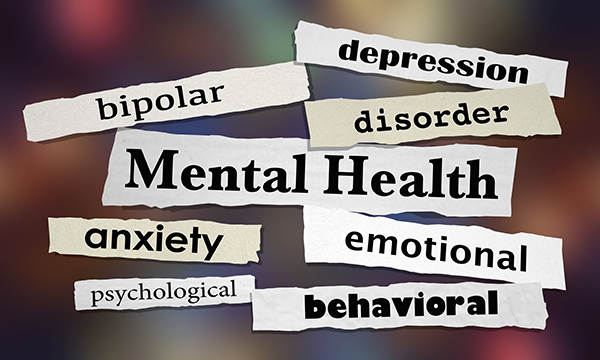Chronic stress linked to 78% higher stroke risk in young women, study finds
09/23/2025 / By Cassie B.

- Stress dramatically increases stroke risk in young women by 78% compared to less-stressed peers.
- Nearly half of young adults with unexplained strokes reported high stress levels before the event.
- Women’s bodies are far more vulnerable to stress-related cardiovascular damage than men’s bodies.
- Chronic stress rewires the body, causing inflammation, high blood pressure, and metabolic dysfunction.
- Natural solutions like meditation, sleep, and anti-inflammatory foods can counteract stress’s deadly effects.
For years, doctors have warned that stress takes a toll on the heart, but new research reveals just how dangerous it can be, especially for young women. A study published in Neurology found that women under 50 with moderate stress levels had a 78% higher risk of stroke compared to their less-stressed peers. Even more concerning? Nearly half of young adults who suffered cryptogenic ischemic strokes—those with no clear cause—reported moderate to high stress in the month before their stroke.
The findings, led by researchers at Helsinki University Hospital, suggest that stress isn’t just an emotional burden; it’s a silent cardiovascular threat, particularly for women. While men showed no significant link between stress and stroke risk, women’s bodies appear far more vulnerable to its damaging effects.
Stress isn’t just mental… it’s a full-body assault
The study tracked 426 young adults who had experienced a first-time cryptogenic stroke and compared them to 426 stroke-free individuals of the same age and sex. Participants self-reported their stress levels using the Perceived Stress Scale (PSS), which measures how overwhelmed or out of control a person feels.
The results were striking: 46% of stroke survivors reported moderate to high stress before their stroke, compared to just 33% of the control group. Even after accounting for smoking, alcohol use, blood pressure, and other risk factors, stress remained a major red flag… but only for women.
Dr. Nicolas Martinez-Majander, the study’s lead author, noted that younger people often face stress from long work hours, financial pressures, and job insecurity. But why does stress hit women harder? Researchers suspect hormonal, metabolic, and vascular differences may make women more susceptible to stress-related damage.
How stress quietly destroys cardiovascular health
Chronic stress doesn’t just make you feel frazzled; it rewires your body for disease. When stress becomes constant, cortisol (the “stress hormone”) stays elevated, leading to:
- Higher blood pressure, straining arteries and the heart
- Increased inflammation, damaging blood vessels and brain tissue
- Impaired blood flow, raising the risk of clots
- Metabolic chaos, spiking blood sugar and cholesterol
Over time, this silent assault weakens the cardiovascular system, making strokes and other deadly events far more likely.
Natural solutions to combat stress before it’s too late
The good news? Stress is a modifiable risk factor, meaning you can take steps to reduce its impact. Experts recommend:
- Mind-body practices like meditation or deep breathing to lower cortisol
- Regular movement, even short walks, to counteract stress hormones
- Prioritizing sleep, which helps repair blood vessels and brain function
- Anti-inflammatory nutrition, including omega-3s, magnesium, and antioxidant-rich foods
- Reducing environmental stressors, such as excessive screen time and toxic chemicals
These strategies aren’t just feel-good advice; they’re science-backed defenses against stress-related damage.
A wake-up call for women’s health
The study raises urgent questions: Why does moderate stress pose a greater risk than high stress for women? And what unique pressures are women facing that men aren’t?
Dr. Christina Mijalski Sells of Stanford Medicine points to societal expectations: “Oftentimes women are the default primary parent. As we move to two-income households being more common, they may still be carrying all of that burden from home and child care, in addition to also balancing that full-time work.” This invisible labor may contribute to higher stress levels, yet it’s rarely addressed in medical risk assessments.
With political unrest, financial instability, and the pressures of modern life, stress levels are rising across the board. Yet this study proves that stress isn’t just an emotional issue. It’s a physical threat, especially for young women.
While more research is needed to fully understand the gender gap, one thing is clear: Ignoring stress could be deadly. By addressing stress now through lifestyle changes, natural remedies, and boundary-setting, you might just save your own life.
Sources for this article include:
Submit a correction >>
Tagged Under:
#nutrition, blood clot, blood pressure, blood vessels, brain function, cardiovascular disease, cholesterol, chronic stress, Heart, stress, stroke, women's health
This article may contain statements that reflect the opinion of the author





















